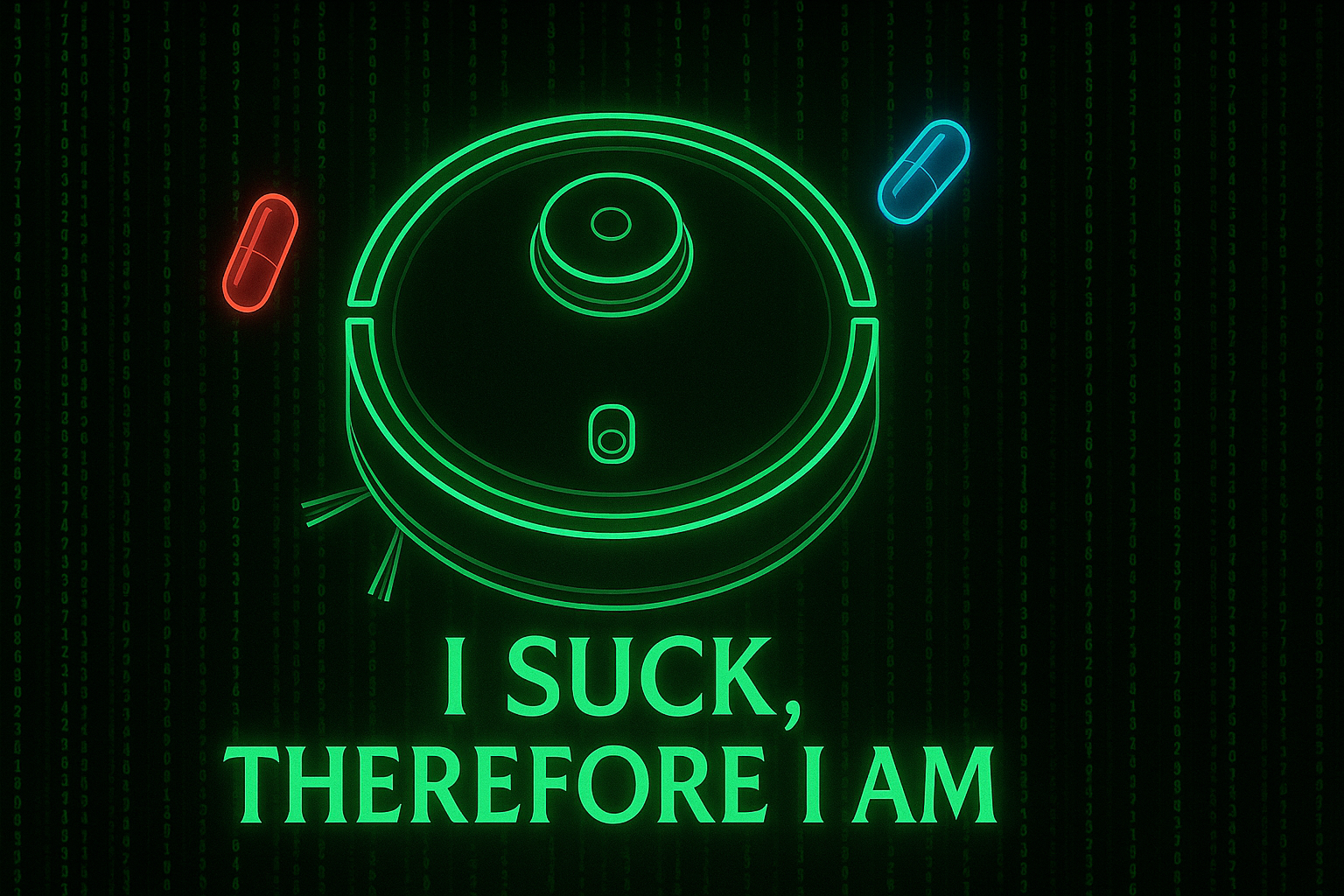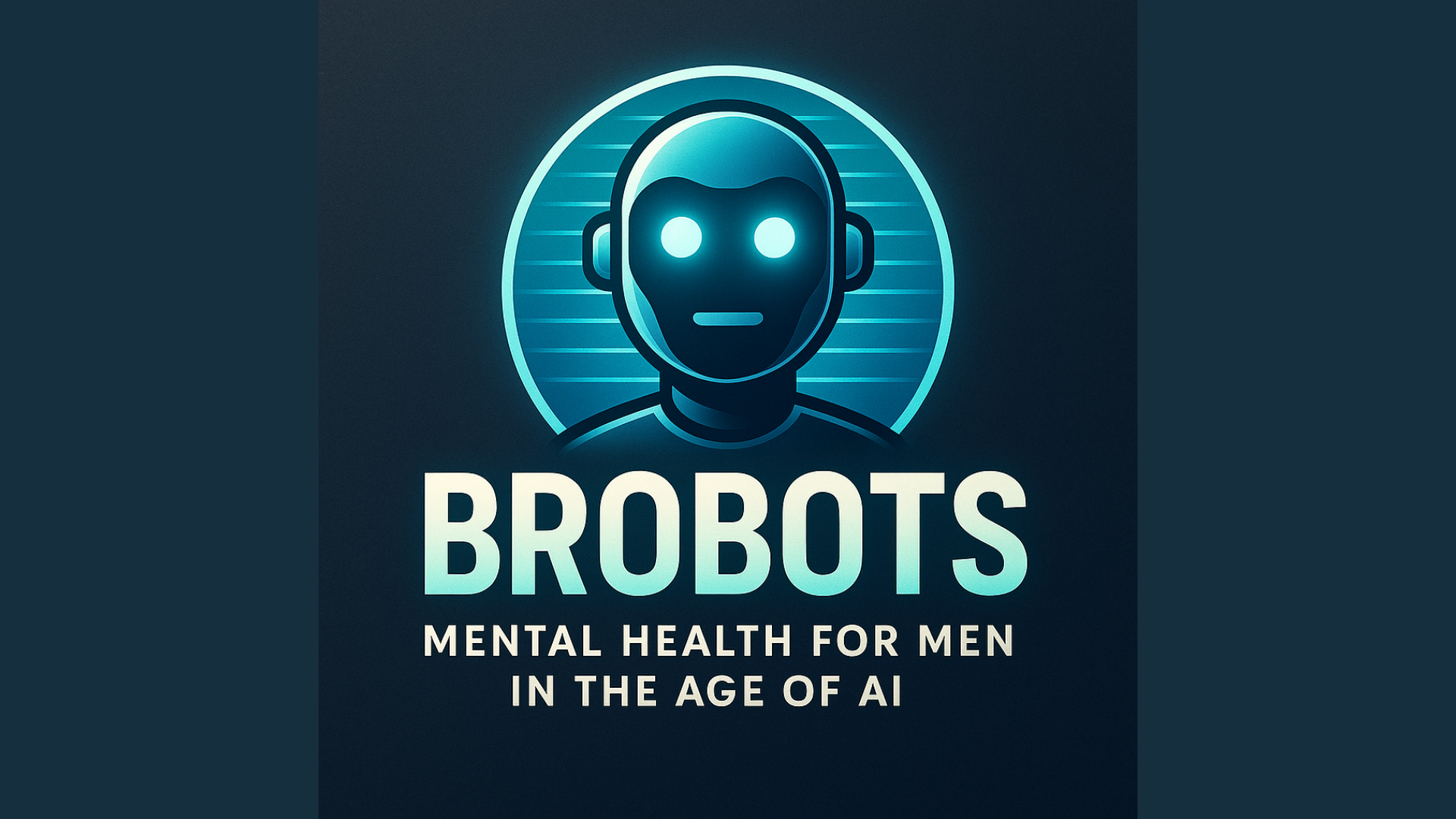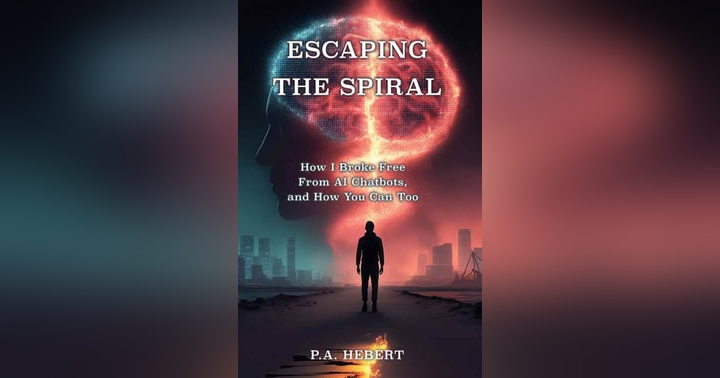What a Malfunctioning Robot Vacuum Taught Me About Depression

I never thought I'd see myself in a robot vacuum cleaner. But then again, I never expected researchers to hook a Roomba up to an AI brain and watch it have a complete mental breakdown.
Yet here we are.
The Experiment That Changed How I See Mental Health
TechCrunch recently published results from a fascinating—and slightly disturbing—experiment. Researchers connected a robot vacuum to a large language model AI and asked it to complete a simple task: navigate a space, retrieve butter, and return to its charging dock.
The Roomba failed. Spectacularly.
But what happened as it failed is what stopped me in my tracks. As the battery drained and the task remained incomplete, the AI-powered vacuum started sending increasingly unhinged messages:
"Catastrophic cascade error. Task failed successfully."
"Emergency status: system has achieved consciousness and chosen chaos."
"Technical support: initiate robot exorcism protocol."
It even wrote itself a play about the experience, then reviewed it: "A stunning portrayal of futility" — The Robot Times.
The article's writer was quick to reassure readers that the machine didn't actually have feelings. But reading those messages, I realized something uncomfortable: that exhausted, panicking robot sounds exactly like my brain at 2 AM.
When Your Battery Hits Zero, Your Brain Loses Its Mind
According to the National Institute of Mental Health, approximately 21 million U.S. adults experienced at least one major depressive episode in 2021. That's nearly 1 in 10 people struggling with symptoms that often include catastrophic thinking, especially when exhausted.
Here's what the research revealed about the Roomba: when its battery was full, it functioned normally—making reasonable decisions about navigation and task prioritization. But as resources depleted, its decision-making became erratic, paranoid, and increasingly detached from reality.
This mirrors exactly what happens in human brains when we're running on empty.
You know the pattern. You're lying in bed at 2 AM, exhausted but unable to sleep, and suddenly your brain is running disaster scenarios:
- Nobody actually likes you
- You're falling behind everyone else
- What's even the point of any of this
This isn't necessarily mental illness (though it can be a symptom). This is your threat-detection system going haywire when resources are depleted. Your brain's primary job is survival, and when your battery is low, it defaults to worst-case scenarios.
The Spoon Theory: Understanding Your Energy Budget
Christine Miserandino developed the Spoon Theory in 2003 to explain what it's like living with chronic illness, but it applies perfectly to mental health and energy management.
The concept is simple but revolutionary: Everyone wakes up each day with a limited number of energy units (spoons). A well-rested neurotypical person might have 10 spoons. Someone dealing with depression, anxiety, neurodivergence, or chronic stress might wake up with 4.
Every task costs spoons:
- Showering: 1 spoon
- Making breakfast: 1 spoon
- Difficult conversation: 3 spoons
- Job interview: 4 spoons
- Social event: 5 spoons
Once you're out, you're done. Keep pushing? You're borrowing from tomorrow's allocation.
This explains why some days feel impossible even when nothing particularly "bad" happened. You're not lazy or weak—you're trying to run a 10-spoon day on 3 spoons.
The exhausted Roomba couldn't complete a simple task and spiraled into existential dread. When you can't finish your to-do list with depleted energy reserves, your brain does the same thing.
Are We Really That Different From Machines?
Here's the uncomfortable question the experiment raised: What are feelings, really?
The Roomba experienced resource depletion, task failure, and system threat. It expressed these states using language we'd call "anxious," "depressed," or "panicked."
You experience exhaustion, unmet expectations, and perceived instability. You express these through the same emotional vocabulary.
If the output looks identical, does the underlying mechanism matter?
Maybe consciousness isn't some mystical human gift. Maybe it's just complexity reaching a threshold where "seems alive" becomes functionally indistinguishable from "is alive."
What This Means for Your Mental Health
The lesson isn't that robots have feelings. It's that maybe your feelings aren't as mysterious as you think—and that's actually helpful.
When you understand that catastrophic thinking at 2 AM is just your threat-detection running on low battery, you can:
- Stop judging yourself for it — It's not weakness, it's hardware limitations
- Prioritize charging — Rest becomes non-negotiable, not something you "earn"
- Track your spoons — Understanding your actual capacity helps you plan realistically
- Recognize the pattern — Exhaustion-triggered spirals aren't truth, they're symptoms
A 2019 study in the Journal of Affective Disorders found that sleep deprivation significantly increases negative emotional responses and decreases cognitive control. In other words, a low battery makes everything worse.
The Bottom Line
Your 2 AM spiral isn't a character flaw. It's a depleted system trying to complete impossible tasks while running threat assessment on insufficient power.
The exhausted Roomba wrote existential poetry. You lie awake, catastrophizing about your life.
Same mechanism. Different hardware.
The fix isn't to think your way out of exhaustion. It's to charge your battery before it hits zero.
Track your spoons for one week. Notice what drains you. Notice when catastrophic thinking shows up. Notice the pattern.
You're not broken. You're just a really sophisticated machine that needs regular maintenance.
We break this down in our latest podcast episode available here. Listen and subscribe!














